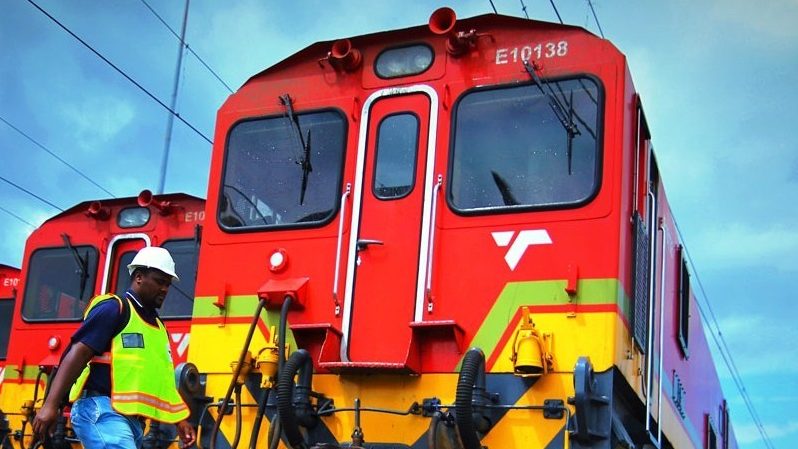| Job Title: | Transnet is hiring Port Workers |
| Company: | Transnet |
| Job Reference: | Transnet |
| Location: | Saldanha Port , ZA |
| Employment Type: | Full Time |
| Date Posted: | 2024-10-21 |
| Closing Date: | 2024-12-31 |
| Salary: | ZAR 5000 - 8000 per month |
Transnet is hiring Port Workers - Job Description
The Role of Port Workers in Saldanha, South Africa: A Comprehensive Overview
Introduction
Port workers play an essential role in the smooth operation of ports across the world, and Saldanha Port in South Africa is no exception. Located in the Western Cape, Saldanha is one of the country’s busiest deep-water harbors, specializing in the export of iron ore. As a vital link in the global supply chain, the efficiency and effectiveness of port workers directly influence both the local and national economy. This article will explore the responsibilities, qualifications, competencies, and overall importance of port workers at Saldanha Port, providing a deep dive into the significance of the role, the work environment, and the qualifications required.
Understanding Saldanha Port and its Importance
Saldanha Bay is situated about 60 kilometers north of Cape Town. The port is primarily known for exporting large quantities of iron ore, a critical raw material for steel production worldwide. It is one of the largest iron ore ports in Africa and is strategically important in global maritime trade.
The terminal at Saldanha, operated by Transnet Port Terminals (TPT), handles bulk cargo, with the port being equipped with specialized infrastructure such as berths, storage facilities, and a rail link. For the port to function smoothly and meet international shipping demands, a large workforce is involved in managing both the logistics of loading/unloading goods and ensuring that the port environment remains safe and efficient.
The Role of Port Workers: Key Responsibilities
A port worker at Saldanha is tasked with ensuring the safe and efficient handling of goods, maintaining cleanliness, and supporting various operational functions. Their work is crucial for the operational efficiency of the port, particularly given the heavy traffic of cargo vessels that arrive and depart daily. Some of the primary responsibilities of a port worker include:
Cargo Handling: Port workers assist in the loading and unloading of cargo from ships. This involves operating or assisting with machinery, such as cranes and forklifts, to transport goods from vessels to storage areas or directly to transportation systems like trucks or railcars.
Safety and Compliance: Port workers must adhere to strict safety protocols to minimize the risks of accidents. This includes wearing personal protective equipment (PPE), conducting safety checks on machinery, and ensuring that all cargo is securely loaded or unloaded to prevent spills or damage.
Maintenance and Cleanliness: Port workers are also responsible for maintaining the cleanliness of the port area. This includes cleaning up cargo spills, sweeping docks, and ensuring that the work environment remains safe and hygienic.
Operational Support: Port workers help support other operational activities like managing paperwork for imports/exports, checking cargo documentation, and assisting logistics staff in ensuring goods are moved promptly.
Physical Labor: The work of a port worker can be physically demanding. Long hours on their feet, heavy lifting, and exposure to varying weather conditions are part of the job. However, workers are typically trained to handle these challenges efficiently.
Key Qualifications and Experience
Port workers at Saldanha Port need to have a combination of education and hands-on experience to perform their duties effectively. While the job requires a high degree of physical stamina and manual dexterity, certain academic and professional qualifications also play a role in ensuring that workers can perform the job safely and competently.
Education Requirements:
Grade 12 / NQF Level 4: While a formal qualification is not always a strict requirement, having a Grade 12 (National Senior Certificate) or equivalent is preferred. This level of education ensures that the worker has a basic understanding of communication and mathematics, both of which are useful in the logistics and safety aspects of port operations.
Grade 10 / NQF Level 2: Alternatively, workers with a Grade 10 qualification or equivalent (NQF Level 2) are also eligible for the role, provided they have more substantial hands-on experience.
Experience:
Terminal Experience: A minimum of six months of experience in a terminal or port environment is typically required for candidates with Grade 12/NQF Level 4. Those with a Grade 10 qualification may be required to have at least two years of practical experience.
Safety Certification: Workers must be familiar with safety protocols, and in some cases, certifications in first aid, firefighting, or other safety-related fields may be required or preferred.
Additional Skills:
Attention to Detail: Port workers must be detail-oriented to ensure that cargo is handled correctly and safely.
Physical Stamina: The work is often physically demanding, requiring workers to have the stamina to lift, move, and handle heavy items.
Communication: Good communication skills are necessary to coordinate effectively with supervisors, co-workers, and other departments involved in the port’s operations.
Teamwork: Port workers must be able to work well in teams, as many tasks require collective effort, such as unloading large cargo ships.
Competencies for Port Workers
Beyond the essential qualifications, several competencies are necessary to succeed as a port worker at Saldanha. These competencies ensure that workers are not only able to perform their duties effectively but also contribute to the broader goals of port operations.
Knowledge of Terminal Layout: A clear understanding of the terminal’s layout is crucial. Port workers must know where different types of cargo are stored, where machinery is located, and the most efficient pathways for moving goods through the terminal. This knowledge reduces operational delays and enhances safety.
Safety Knowledge: Ports can be hazardous environments with heavy machinery, large cargo, and dangerous equipment. A solid understanding of safety procedures, such as handling hazardous materials, fire safety, and emergency response, is vital to reduce the risk of accidents or injuries.
Stacking and Storage: Knowing how to stack cargo correctly is crucial in optimizing space, preventing damage, and ensuring the safety of the working environment. Port workers are responsible for arranging goods so that they are easily accessible and secure.
Technological Proficiency: Many ports are increasingly relying on automated systems and technology to improve efficiency. Port workers may need to operate computerized cargo tracking systems, control machinery remotely, or participate in data entry for inventory management.
Problem-Solving Skills: Ports can experience unexpected issues, such as delays, equipment breakdowns, or shortages of materials. Workers with good problem-solving skills can quickly address such challenges to ensure the continuous flow of operations.
Adaptability: Ports are dynamic environments where conditions can change rapidly. Whether dealing with bad weather, shifts in cargo handling methods, or new regulations, port workers need to remain flexible and adaptable.
Working Environment: Challenges and Rewards
Port workers in Saldanha face a unique set of challenges, but the work is also rewarding. The port is located in an industrial setting, and workers are often required to perform tasks outdoors, exposed to the elements. The working conditions can be harsh at times, especially when dealing with extreme weather, high noise levels from heavy machinery, and long working hours.
However, the role also offers several benefits. Port workers are an integral part of a team that supports a major export industry. Their work directly contributes to the economy of South Africa, particularly in the mining and steel industries. Moreover, as ports are often hubs of international trade, workers may have opportunities to interact with global shipping companies and learn about international logistics.
Port workers may also receive competitive compensation and benefits. Overtime pay, shift differentials, and benefits such as healthcare or retirement plans are common incentives. Additionally, career advancement opportunities exist within the port terminal and larger maritime logistics industry. Workers may progress to supervisory or technical roles, such as crane operators or terminal managers, with further training and certification.
The Role of Employment Equity and Diversity
At Saldanha Port, the company adheres to South Africa’s Employment Equity Plan, which aims to ensure fair treatment and equal opportunity for individuals from various designated groups. Preference is often given to suitably qualified applicants who are members of these groups, with a focus on creating a more inclusive and diverse workforce.
Transnet Port Terminals, the company that operates the port, is committed to fostering an environment where all workers have equal access to opportunities for growth and advancement. The aim is to ensure that the workforce at Saldanha Port reflects the diversity of South Africa, while also promoting a culture of fairness and respect.
Conclusion
Port workers in Saldanha play an essential role in the functionality and efficiency of the port, ensuring that goods are handled safely, the environment remains clean, and operations run smoothly. The qualifications, experience, and competencies required for the role demonstrate the importance of having skilled and dedicated individuals to maintain high standards of operation in a demanding environment.
The position of port worker offers a variety of challenges, but it also provides opportunities for personal growth, career development, and a sense of pride in contributing to a critical part of South Africa’s economy. As the global economy continues to rely heavily on trade and logistics, the role of port workers will remain central to the smooth functioning of maritime trade and the continued success of ports like Saldanha.







